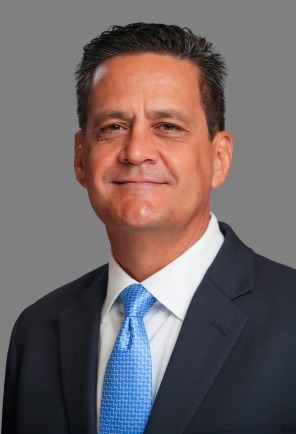Is Your Head in the Clouds? A Closer Look at the Taxability of Software as a Service
As companies continue to look for ways to minimize IT infrastructure costs and gain the benefits of increasing technological advantages, Software as a Service (SaaS), or cloud computing, will continue to grow. Most states impose sales tax on the sale or transfer of tangible personal property, but a growing number of states tax services, including SaaS. With states facing budget shortfalls, more and more of them are exploring the possibility of taxing SaaS as a potential source of revenue.
What Is Software as a Service?
SaaS generally consists of software that is hosted at a central location and is provided to multiple users that remotely access the software and related data over the Internet. Customers pay for the right to access the software and for a license to use it. It is no surprise that SaaS has grown in popularity, because a customer can access it from anywhere the customer has an Internet connection. The software is also routinely upgraded by the provider so that the customer gets the benefit of the newest technology without the added cost.
SaaS can be used for a variety of business applications, including accounting, collaboration, customer relationship management, invoicing, human resource management and security.
Question of Taxability
Historically, companies purchased software that was delivered in a tangible form (e.g., on a disc) or electronically. When software was first delivered electronically, there was no clear guidance from states about its taxability. Although states are split on whether electronically delivered software should be taxable, most states have statutes addressing its taxability. For example, Florida does not tax electronically delivered software, while New York imposes sales tax on software regardless of its method of delivery.
As we saw with electronically delivered software, states are finally catching up and starting to address the taxability of SaaS. Generally, the taxability of SaaS will hinge on the specific facts of the provider and customer, the type of SaaS, and the location of use or benefit. When determining the taxability of SaaS, a company should consider the following three questions:
- Where does the SaaS provider have nexus?
- Where is the buyer located or benefit received?
- Does the state in question tax SaaS?
For a SaaS provider, the first question should be whether it has nexus with the state where the customers use the service. Regardless of the product or service a company sells, the company must have a physical presence, or nexus, with the state. Nexus is generally created by maintaining property or employees or by sending a sales representative or agent into a state.
When determining the taxability of SaaS, it is also important to establish the buyer’s location or where the benefit is received. Historically, electronically delivered software was delivered or downloaded to a fixed location, and the location of the buyer or receipt of benefit was relatively simple to ascertain. However, SaaS is different from the sourcing of electronically delivered software because SaaS customers remotely access the SaaS from anywhere the customer has Internet access, often making it difficult to identify where the benefit is received. If a provider cannot determine where the SaaS is used, it may not be able to determine if it has a sales tax collection responsibility or apply the appropriate tax.
Assuming the provider can identify where the benefit is received and if it has nexus in that state, then it must ascertain if SaaS is subject to tax in the state. However, even if a provider does not have nexus, a customer may nonetheless be responsible for accruing and remitting use tax if the state imposes tax on SaaS.
States’ Positions on the Taxability of SaaS
Although SaaS is a rapidly growing trend in today’s IT world, only a few states, such as Washington, have addressed the taxability of SaaS in their statutes and regulations. Effective July 2009, Washington imposes tax on digital automated services (DAS). DAS are any electronic services that use one or more software applications. Additionally, Washington imposes sales tax on remote access software (RAS), which is prewritten software provided remotely. Based on these definitions, Washington would most likely tax SaaS.
Yet other states have addressed SaaS through interpretations of the current law and private letter rulings. Texas has addressed SaaS in private letter rulings by treating it like taxable data-processing services. A company requested a ruling on the treatment of medical transcription services using SaaS voice recognition software. Texas concluded that the company was providing a taxable data-processing service since the SaaS converted the uploaded digital speech into a written format. In another letter ruling, a California corporation with sales personnel in Texas provided an online business application to record and manage business transactions, manage customer relationships, and plan enterprise resources. Texas determined that the California corporation had nexus in Texas and was providing taxable data-processing services. Based on these rulings, Texas appears to take the position that if the provider has nexus in the state and the SaaS processes any data, then it will be subject to tax as a data-processing service.
In Adobe Systems Inc.,New York issued an advisory opinion stating that a license agreement to remotely access and use software should be treated as a license of prewritten computer software. In another opinion, New York determined that software located on servers outside New York but remotely accessed from New York via the Internet was a taxable software license. It should also be noted that New York sources the sale where the benefit is received, which could be important if the provider does not have nexus in the state.
Utah, like New York and Texas, appears to tax SaaS. Unlike New York, however, Utah imposes sales tax based on the location of the server hosting the software. In a private letter ruling, Utah stated SaaS is equivalent to leasing the server space where the software is located. As a result, if the servers are located in Utah, the state will tax the SaaS as a lease of tangible property. However, when the servers are located in another state, the customer does not possess or lease any tangible property in Utah and the transaction is not taxable.
Arizona, Indiana, Louisiana, and Massachusetts would most likely treat SaaS as taxable licenses. Additionally, states like Hawaii, New Mexico, and South Dakota that impose sales tax on all gross receipts, including software and services, would most likely tax SaaS.
In Illinois, the state determined via a private letter ruling that remotely accessed software was not a taxable license of canned software based on a five-step test. California and Florida have not issued private letter rulings, but the laws in these states do not impose tax on electronically delivered software and do not consider SaaS to be a specifically enumerated taxable service. Therefore, SaaS would most likely not be subject to tax in California or Florida.
More states continue to investigate the possibility of raising revenues by taxing SaaS. Effective January 2010, North Carolina amended its statutes to tax most software, including electronically delivered software. Since SaaS is accessed remotely, one could argue that software is not delivered and a service is provided instead. It is important to note that North Carolina does not impose tax on information services that generate, acquire, store, process, or retrieve data and information and deliver it electronically or allow electronic access.
In Minnesota, Governor Mark Dayton, as part of his 2012-13 budget, has proposed imposing a sales tax on “charges for the access and use of remote access (web-based) software maintained by the seller or a third party.” While this proposal has not been enacted, it is a clear sign of states’ growing interest in the taxability of cloud computing, specifically SaaS.
Alvarez & Marsal Taxand Says:
Currently, many states consider cloud computing to be a service exempt from tax. However, as states continue to expand their tax base to meet growing deficits, companies can expect SaaS to be a point of interest. As such, it is important for SaaS providers to understand their tax filing obligations and to monitor proposed state legislation. Customers should also understand the added costs (i.e., sales and/or use tax) that may be imposed on their purchases of SaaS. It is imperative that providers, as well as customers, become aware of these state tax rules to avoid falling into any pitfalls along the way.
Feedback:
We would like to hear from you.
Disclaimer
As provided in Treasury Department Circular 230, this publication is not intended or written by Alvarez & Marsal Taxand, LLC, (or any Taxand member firm) to be used, and cannot be used, by a client or any other person or entity for the purpose of avoiding tax penalties that may be imposed on any taxpayer.
The information contained herein is of a general nature and based on authorities that are subject to change. Readers are reminded that they should not consider this publication to be a recommendation to undertake any tax position, nor consider the information contained herein to be complete. Before any item or treatment is reported or excluded from reporting on tax returns, financial statements or any other document, for any reason, readers should thoroughly evaluate their specific facts and circumstances, and obtain the advice and assistance of qualified tax advisors. The information reported in this publication may not continue to apply to a reader's situation as a result of changing laws and associated authoritative literature, and readers are reminded to consult with their tax or other professional advisors before determining if any information contained herein remains applicable to their facts and circumstances.
About Alvarez & Marsal Taxand
Alvarez & Marsal Taxand, an affiliate of Alvarez & Marsal (A&M), a leading global professional services firm, is an independent tax group made up of experienced tax professionals dedicated to providing customized tax advice to clients and investors across a broad range of industries. Its professionals extend A&M's commitment to offering clients a choice in advisors who are free from audit-based conflicts of interest, and bring an unyielding commitment to delivering responsive client service. A&M Taxand has offices in major metropolitan markets throughout the US., and serves the U.K. from its base in London.
Alvarez & Marsal Taxand is a founder of Taxand, the world's largest independent tax organization, which provides high quality, integrated tax advice worldwide. Taxand professionals, including almost 400 partners and more than 2,000 advisors in nearly 50 countries, grasp both the fine points of tax and the broader strategic implications, helping you mitigate risk, manage your tax burden and drive the performance of your business.
To learn more, visit www.alvarezandmarsal.com or www.taxand.com.





